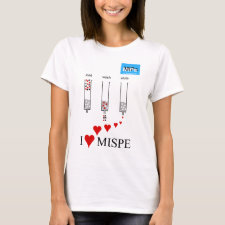
Authors: Ji SL, Li TF, Yang W, Shu C, Li D, Wang Y, Ding L
Article Title: A hollow porous molecularly imprinted polymer as a sorbent for the extraction of 7 macrolide antibiotics prior to their determination by HPLC-MS/MS.
Publication date: 2018
Journal: Microchimica Acta
Volume: 185
Issue: (3)
Page numbers: ArticleNo203.
DOI: 10.1007/s00604-018-2728-3
Abstract: A hollow porous molecularly imprinted polymer (HPMIP) is described for use in dispersive solid phase extraction of macrolide antibiotics (MACs). The HPMIP was prepared by using spiramycin as the template, methacrylic acid as the functional monomer, and mesoporous MCM-41 (Mobile Composition of Matter No. 41; with a size of about 100 nm) as a sacrificial support. The sorbent was characterized by Fourier transform infrared spectrometry, transmission electron microscopy, nitrogen adsorption and thermo-gravimetric analysis. Several parameters affecting the extraction efficiency were optimized. The material has a large surface area (359 m2 g-1), and most recognition sites are located on the surface of the HPMIPs. This results in high binding capacity (120 μmol g-1) and fast binding (20 min) in comparison to either MCM-41-core surface MIPs or solid MIPs. The method was applied to the extraction of the MACs azithromycin, spiramycin, tilmicosin, tylosin, clarithromycin, roxithromycin and josamycin from spiked honey. The recoveries, determined by HPLC-MS/MS, ranged from 88.0% to 117% at the three spiking levels tested (1, 5 and 20 μg kg-1). Intra-day and inter-day assay precision at three spiking levels are <10.7% (for n = 6) and 12.6% (n = 3), respectively. The limits of detection are between 3 and 17 ng kg-1. This indicates the superiority of the method in selective extraction of macrolides even from complex matrices
Template and target information: macrolide antibiotics, MACs, azithromycin, spiramycin, tilmicosin, tylosin, clarithromycin, roxithromycin, josamycin
Author keywords: Molecularly imprinted polymers, mesoporous silica, Dispersive Solid Phase Extraction, Macrolide antibiotics, Honey



Join the Society for Molecular Imprinting

New items RSS feed
Sign-up for e-mail updates:
Choose between receiving an occasional newsletter or more frequent e-mail alerts.
Click here to go to the sign-up page.
Is your name elemental or peptidic? Enter your name and find out by clicking either of the buttons below!
Other products you may like:
 MIPdatabase
MIPdatabase









